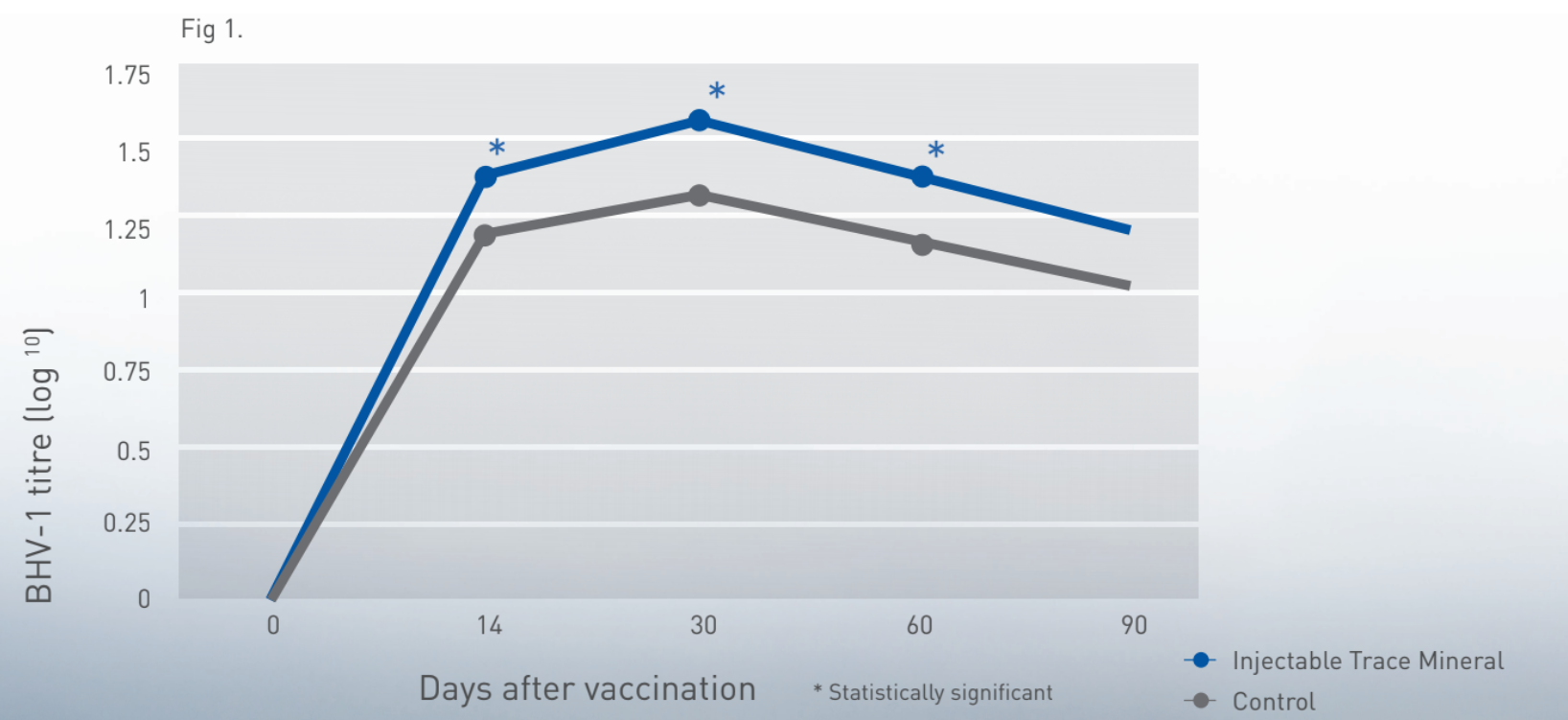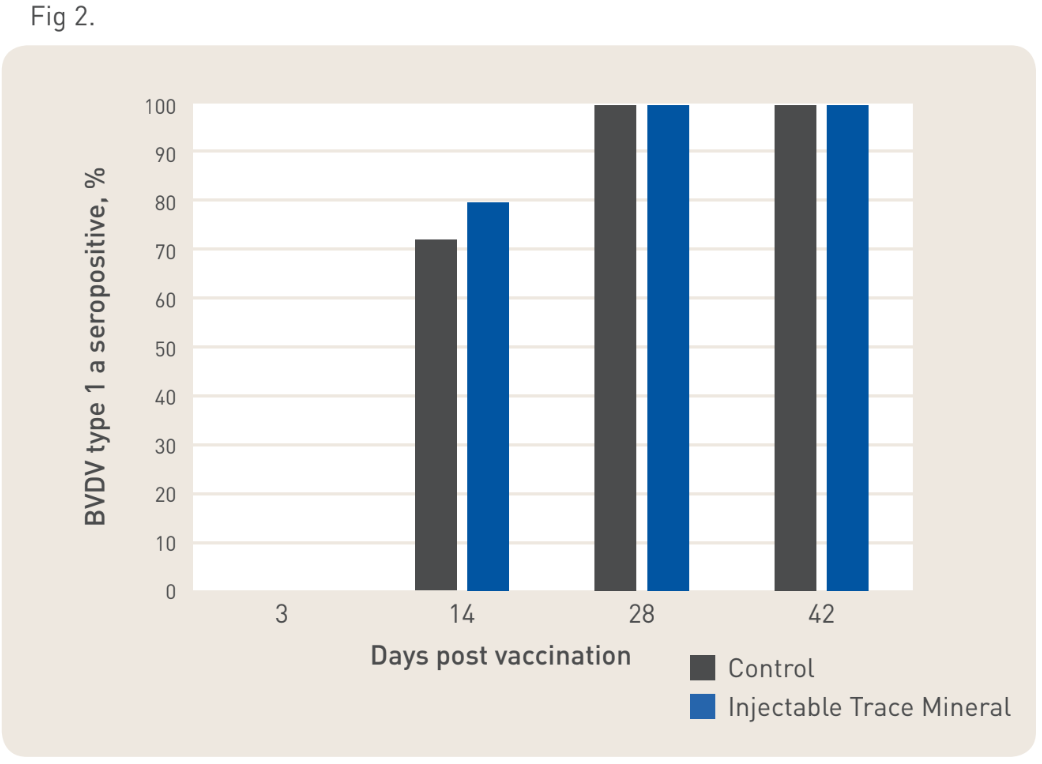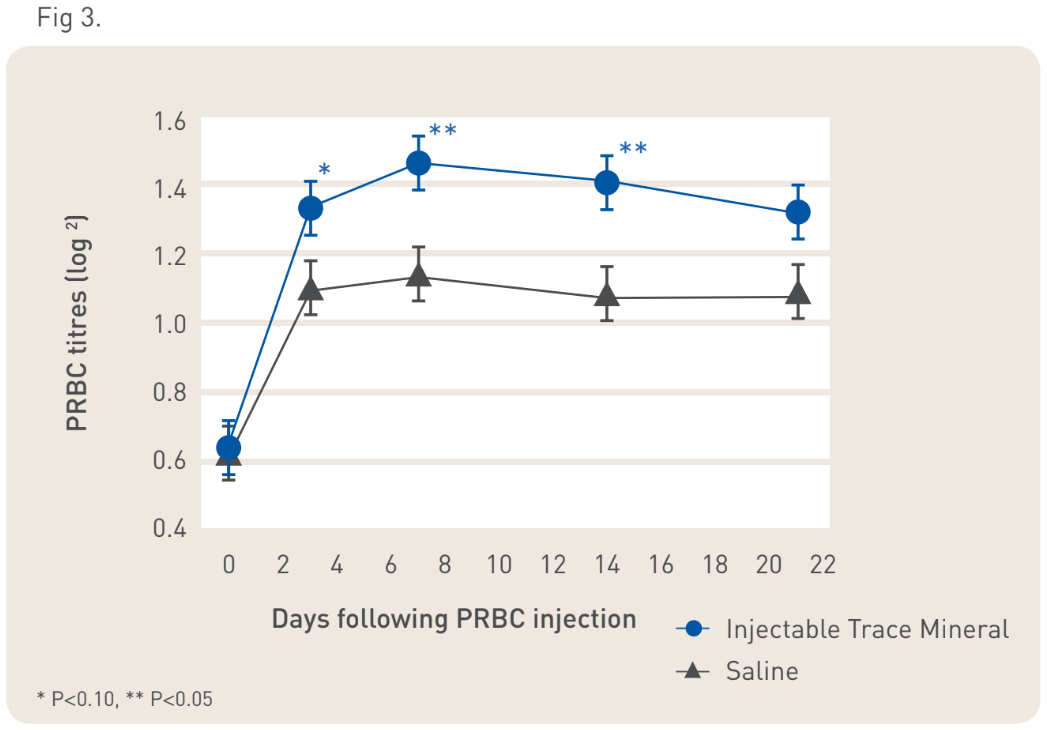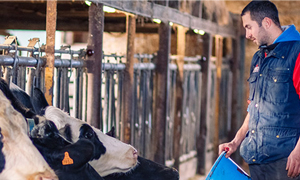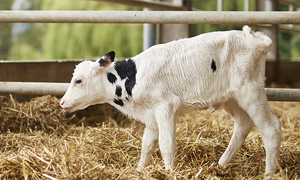Trace Minerals and Vaccination
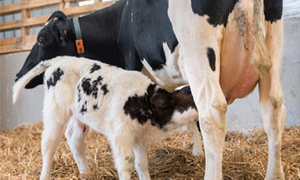
Supplementation of trace minerals has been identifi ed as having a positive effect on immune function2. For example, Selenium defi ciency is associated with reduced B-cell response and antibody production3 , cattle fed copper defi cient diets show a signifi cant reduction in B-cell numbers4 and zinc is essential for B- cell function and antibody production 5,6.
Stressors on calves such as vaccination, weaning, and transport can exacerbate trace mineral imbalances which could lead to reduced response to vaccines7 .
In a 2012 study, Arthington and Havenga8 demonstrated how vaccination altered the trace mineral status of cattle. Beef steers were vaccinated and blood samples were taken on D0 immediately before vaccination and D14 after vaccination. By D14, cattle experienced decreased serum trace mineral concentrations in response to vaccination.
Even in adequate trace mineral status, mounting an immune response to a vaccine can deplete trace mineral stores, meaning vaccinated cattle may not achieve effective inoculation or response to a booster8.
In recent years, trials from leading US universities have shown that strategic trace mineral supplementation at vaccination could help enhance bovine immune response to vaccination.
Indeed Arthington and Havenga8 found that compared to controls, animals treated with a four in one trace mineral injection at the time of vaccination had signifi cantly greater neutralizing antibody titres against BHV-1 on days 14, 30, and 60 post vaccination. See Fig 1.
Supplementation of trace minerals has been identifi ed as having a positive effect on immune function 2 ..
In 2016, Roberts et al 9 demonstrated calves that were supplemented at the time of vaccination had an increase (P = 0.02) in BVDV-specific antibody titre on D14 compared to calves that were vaccinated but not supplemented. This indicates that the BVDV-specifi c antibody response to the vaccine increased earlier with supplementation. See Fig 2.
Arthington et al 201410, treated heifers with an injectable trace mineral supplement or saline to assess their response to a novel immunogen, Porcine Red Blood Cells, which would not be considered a normally occurring antigen in cattle production systems. A heightened humoral immune response, was noted by increased PRBC titres in injectable trace mineral supplemented heifers compared to the control group. See Fig 3.
These findings indicate that injectable trace minerals may be beneficial to humoral immune response in cattle. Good nutritional trace mineral supplementation is essential for livestock but several studies highlight the benefits of strategic injectable trace mineral supplementation with vaccination.

